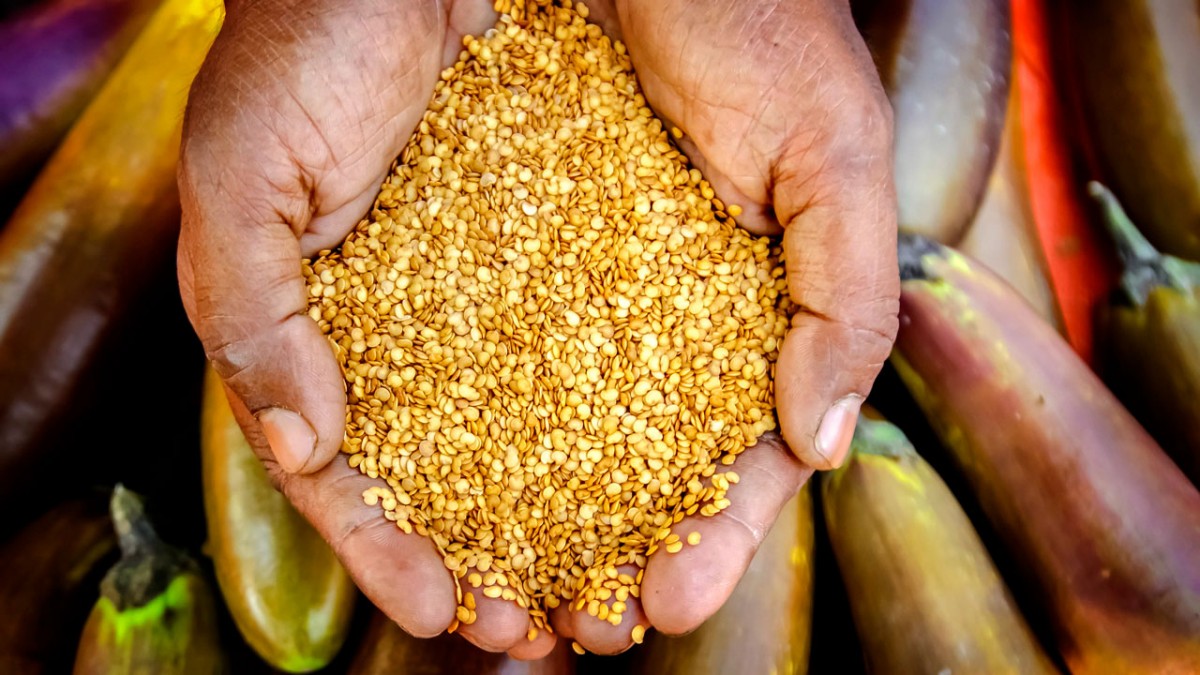After 15 years of testing and safety trials, the Philippines has become the second country to allow farmers to grow eggplant varieties genetically modified to resist the devastating insect known as the eggplant fruit and shoot borer (EFSB).
On October 18, the Department of Agriculture – Bureau of Plant Industry granted the biosafety permit to the University of the Philippines Los Baños (UPLB) for the commercial cultivation of Bt eggplant. Eggplant is a popular and profitable crop grown by hundreds of thousands of farmers in the Philippines.
The Philippines is now the second country to allow commercial cultivation of Bt eggplant, which was approved in Bangladesh in 2013.
Bt eggplant, or talong, was the first biotechnology vegetable crop developed in the Philippines. In the early 2000s, public sector scientists found that introducing a gene from the soil bacterium Bacillus thuringiensis (Bt) into talong successfully repelled the EFSB, offering protection from this devastating insect pest without the use of chemical insecticides. Researchers at UPLB obtained access to the gene and used conventional breeding techniques to develop seven new Bt eggplant varieties and hybrids adapted to Philippine conditions.
The natural protein produced by the Bt gene only affects the targeted insect. Bt crops are widely grown around the world, and extensive research has shown they are safe for human consumption and the environment. Farmers have been growing Bt corn in the Philippines since 2003. Bt is also used globally for insect control in organic agriculture.
Studies conducted in the Philippines have repeatedly confirmed Bt eggplant to be safe and effective at repelling EFSB. Research has shown Bt eggplant cultivation will incur lower production costs for farmers and ultimately provide three-fold higher net farm incomes due to the combined effect of reduced insecticide use and the increased marketable fruit yields.
In 2021 the Philippines government approved Bt eggplant for direct use as food, feed and for processing. This final approval provides the biosafety permit for commercial cultivation.
“This is a huge win for the farmers of Philippines, who will now have access to a crop that better protects their health and the health of the environment,” said Maricelis Acevedo, research professor of global development at Cornell and director for the USAID-supported Feed the Future Insect-Resistant Eggplant Partnership (IREP). “This decision is more than a decade in the making, and it paves the way for farmers to increase their income and crop productivity while reducing the use of highly toxic insecticides. This is what biotechnology and innovation can do for smallholder farmers and consumers.”
Currently, South Asia farmers growing traditional eggplant varieties must spray insecticide multiple times per week to combat the EFSB. Farmers spray insecticides up to 80 to 100 times per season, often without the aid of protective equipment, posing serious health threats to farmers, their families and the environment.
Even with regular applications of insecticide, the fruit and shoot borer can still cause up to 80% crop loss, making insecticides an expensive and inefficient option for farmers.
“Most of the farmers in India, Bangladesh and the Philippines have no personal protective equipment when they’re spraying insecticides or mixing chemicals,” said Tony Shelton, professor emeritus of entomology at Cornell who has been involved with the project since 2005 and served as director of the previous Cornell-led Feed the Future project focused on Bt brinjal from 2015-2021. “Exposure to those chemicals can cause severe health problems for farmers, and often young children are involved. The health problems and the environmental problems associated with so much spraying pleads for a better solution – like Bt eggplant.”
The use of Bt engineered crops is widespread and growing. Most of the cotton and corn grown in the U.S., South America and Asia is modified with the Bt gene. Bt cowpea, or bean, is also grown in Nigeria and is being reviewed for use in Ghana.
The first year that Bangladesh grew Bt eggplant, or brinjal as it’s known locally, seeds were distributed to just 20 farmers. The dramatic improvement in crop yields and up to 92% reduction in pesticide usage led many more farmers to seek out the seeds: now, at least 65,000 farmers in the country are growing Bt eggplant. The numbers are likely higher, because there is no prohibition against farmers saving and replanting seeds, Acevedo said. The Philippines will also allow farmers to save seed if they wish.
Desiree Hautea, recently retired research professor at the University of the Philippines Los Baños, serves as Philippines country coordinator for the IREP project. She and her late husband, Randy Hautea, Ph.D. ’86, led efforts to move the Bt eggplant through the Philippines’ regulatory process.
“Rigorous scientific studies have definitively shown that Bt eggplant is safe for humans and animals, effective in controlling EFSB, provides economic benefits to farmers and consumers, and that it protects the environment in important ways,” Hautea said. “This comprehensive regulatory review shows that the Philippines is ready to reap the benefits of Bt eggplant.”
The Insect-Resistant Eggplant Partnership is funded by USAID as part of Feed the Future, the U.S. Government’s global hunger and food security initiative. It is the latest in a series of USAID-funded projects led by Cornell that have strengthened capacity to develop and disseminate Bt eggplant in the Philippines and Bangladesh, first through the Agricultural Biotechnology Support Project II (ABSPII) and then the Feed the Future South Asia Eggplant Improvement Partnership and the current IREP project.





